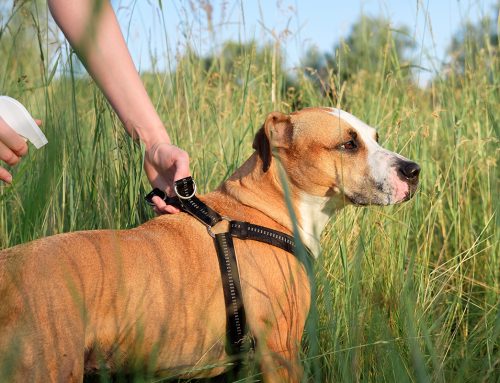At Aloha Veterinary Hospital, our ʻohana-centered philosophy means we treat every pet as part of our family—with compassion, respect, and aloha. We’re committed to gold-standard veterinary care and minimally invasive surgical techniques like our LOVE Spay, because we believe every dog deserves the healthiest, happiest life possible.
Why Spay & Neuter Matter—Especially Around 6 Months
Spaying and neutering are about more than preventing unwanted litters—they play a key role in long-term health and behavior. Many pet parents ask, “Will this help my dog’s behavior?” The answer is yes—for most pets, when done at the right time.
Research shows that spaying or neutering around 6 months of age offers important benefits:
- Reduces hormone-driven behaviors such as mounting, urine marking, and roaming—especially in males.
- Lowers the risk of aggression in certain dogs by decreasing testosterone-related impulses.
- Prevents reproductive diseases like pyometra and testicular cancer, and reduces risk of mammary tumors when done before the first heat cycle.
However, recent research emphasizes that timing matters. At Aloha, we stay current with scientific data—including breed-specific recommendations. Large and giant breeds may benefit from slightly delayed spay/neuter to support orthopedic health, while most other pets thrive when the procedure is done at 6 months.
A 2020 study from UC Davis emphasizes tailoring spay/neuter timing by breed to reduce risks like joint disorders and cancer. At Aloha, we use this evidence to help guide you to the right decision for your dog.
(Reference: Hart et al., 2020 – UC Davis Study on Neutering Dogs)
LOVE Spay: A Gentler, Faster Recovery
We’re proud to offer the LOVE Spay—a laparoscopic ovariectomy that uses tiny incisions and advanced tools for faster, less painful recovery.
Benefits of LOVE Spay include:
- Up to 65% less post-operative pain than traditional spay procedures
- Faster healing, often with less bruising and inflammation
- Lower risks of surgical complications
- Complete protection from pyometra and reduced cancer risks
It’s a smart, compassionate way to provide the care your dog needs—without unnecessary discomfort.
How Spay/Neuter Impacts Behavior
Here’s what research and experience show about the behavioral effects of sterilization:
| Benefit | What It Means |
|---|---|
| Reduced roaming & marking | Especially in males, neutering curbs the urge to escape and stake territory. |
| Decreased aggression | Many dogs show reduced hormone-related aggression post-neuter, especially when combined with training. |
| Improved focus | Spayed/neutered dogs may be less distracted by mating instincts and more responsive to training. |
| Individual differences | Behavior is also shaped by breed, personality, and training—spay/neuter is just one piece of the puzzle. |
Our Aloha Approach: Thoughtful, Personalized, and Compassionate
At Aloha Veterinary Hospital, we don’t believe in one-size-fits-all medicine. Here’s how we guide you through the decision:
- Thorough Evaluation – We consider your pet’s breed, lifestyle, and long-term health risks.
- Age-Appropriate Timing – Most dogs are ideal candidates at 6 months, though some large breeds may benefit from delayed timing.
- Minimally Invasive Surgery – Our LOVE Spay provides a gentler, faster recovery experience.
- Fear-Free Care – Our calming environment and kind approach reduce stress before, during, and after the procedure.
- Ongoing Support – We’ll guide you through post-operative care, behavioral questions, and training resources.

Final Thoughts
At Aloha Veterinary Hospital, our mission is to support whole-pet wellness. Spaying and neutering—especially with our minimally invasive LOVE Spay technique—protect your dog’s health, encourage balanced behavior, and support a lifetime of happiness.
We’re here to help you make the right decision, with compassion, science, and aloha guiding every step.
Mahalo for trusting us with your furry family member,
Dr. Marina & your Aloha ʻOhana
References
- UC Davis Study on Neutering Dogs: Breed-Specific Risks
Hart, B. L., Hart, L. A., Thigpen, A. P., Willits, N. H. (2020). - Psychology Today – “Aggression”
Stanley Coren, PhD, DSc, FRSC (2016)







Leave A Comment